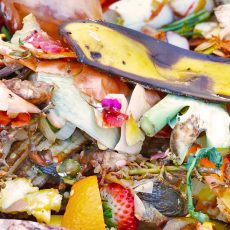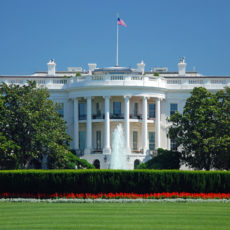
 The Oscars are upon us again tonight. This is the 91st award ceremony. 91 years ago no one had even contemplated Climate Change. But after 88 years, in 2016, the winner of Best Actor decided to create awareness by including the topic in his acceptance speech. This is great exposure for a serious subject and raising the discussion on a global stage is a win. But should actions speak louder than words?
The Oscars are upon us again tonight. This is the 91st award ceremony. 91 years ago no one had even contemplated Climate Change. But after 88 years, in 2016, the winner of Best Actor decided to create awareness by including the topic in his acceptance speech. This is great exposure for a serious subject and raising the discussion on a global stage is a win. But should actions speak louder than words?
Most of us do not live the lives of megastars so we are hardly in any position to judge them. We cannot rank the non-sustainable practices of the entertainment industry against the positive effects of its broadcast. But let us take a look at some of the activities that stem from the Oscars ceremony.
Transport
Of the 3400 guests, how many live locally, walk or take shared transport and other sustainable methods to the Oscars? Of those who live interstate and overseas, will economy be acceptable way to fly to the location, or do they need their own private jet to get them there:
|
Private Jet |
Premium Class | Economy | Rail | |
|
Paris to Los Angeles |
30 – 100 |
3 |
0.7 |
– |
|
New York to Los Angeles |
15 – 55 | 1.3 | 0.3 |
0.06 |
Table 1 – Carbon Footprint from various travel locations (Tons of CO2 eq.)
Driving to the ceremony for 3400 guests is about 50 tons of CO2 eq.
Clothing
When was the last time you saw your favorite celebrity in the same clothing for an awards show? The practice of one off wear is prevalent in an industry that scrutinizes the fashion choices of the stars. The wide range of clothing choices, manufacturing countries and transport costs leaves this as a large range for the Carbon Footprint:
| Clothing Male | 100 – 300 |
| Clothing Female | 80 – 400 |
Table 2 – Carbon Footprint of Oscar Attire (lbs of CO2 eq.)
Multiplying this by the number in attendance is around 380 tons of CO2 eq.
Catering
The Academy Awards are famous for not providing any food during the ceremony however for the 25th straight year the Governors Ball menu has been created by Wolfgang Puck. While we applaud his sustainable practices, serving 16oz. portions at his steakhouse hardly contributes to this perception. A banquet of 30 dishes for 1500 VIPs would be estimated at a minimum of over 50 tons of CO2 (and this could actually be well over 1000 tons).
Ancillaries
The event itself is heavily marshaled, has a huge security detail, exorbitant press coverage and not to mention energy required to keep the production rolling. The eccentricity of the Oscars would be nowhere without the outlandish press coverage it receives. We posture that rather than the carbon footprint of the press, the high profile and veneration encourages the event and attendees to continue in such highly unsustainable practices.
The Goody Bag
While the Goody Bag is not officially endorsed by the Academy, we’ve found no articles stating the refusal of guests to accept these. There is a raft of unusual items but the most highly sort after is the luxurious holiday type gifts. The perks this year include a week in a Californian holiday spa, a stay at the Greek resort Avaton Luxury Villas and an Amazon cruise. More air travel is required to redeem the generous gifts.
Imagine if any one of these celebrity attendees spent the year with a restricted carbon footprint. No flying. No lavishly eccentric clothing. A modest primarily vegan diet. No press coverage. No gift bags. There is enough tech out there to connect all of the attendees on a massive video conference call so they can experience it from their own home. This might be a little too extreme. But changing ones actions gives more authority to ones words. And we applaud those who are doing both.



